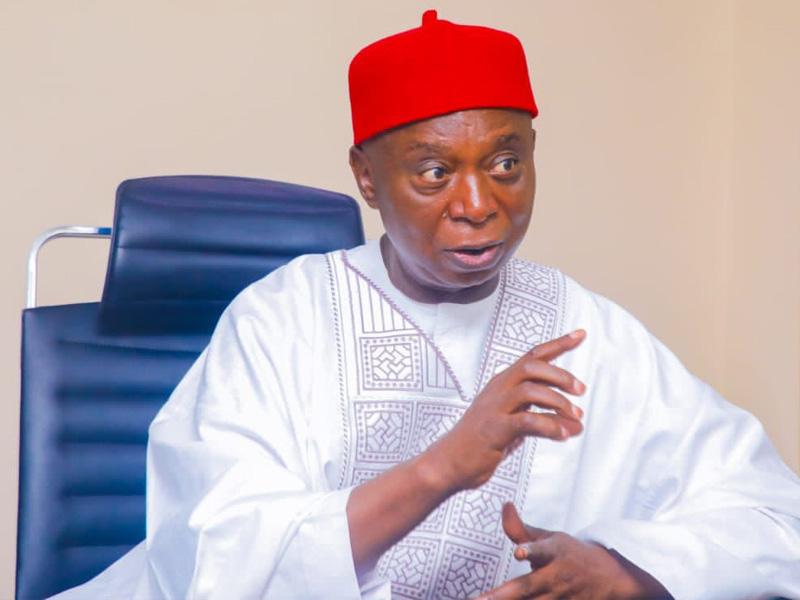The political landscape in Delta North Senatorial District is experiencing a period of intense internal strife within the All Progressives Congress (APC), triggered by the endorsement of incumbent Senator Ned Nwoko for a second term. This seemingly straightforward act of support has unveiled deep fissures within the party, pitting local party leaders in Nwoko’s home base of Aniocha North against the broader senatorial leadership. The resulting conflict highlights the complex interplay of local power dynamics, personal ambitions, and potential external influences within the party.
The controversy ignited on June 14, 2025, when a forum composed of APC local government and ward chairmen from all nine local councils of Delta North convened at Nwoko’s residence and formally endorsed his reelection bid. The event, attended by prominent figures including Delta North APC Chairman Chief Adizue Eluaka, was initially presented as a demonstration of party unity and a resounding affirmation of Nwoko’s performance. This initial perception, however, proved short-lived.
Within days, the seemingly unified front crumbled under pressure from unnamed party stakeholders. Eluaka, who had presided over the endorsement event, abruptly reversed his position, disavowing the forum’s decision and dissolving the group that had championed Nwoko’s return to the Senate. Eluaka’s justification for this sudden about-face was that the forum was an “unauthorized and unconstitutional body,” and its dissolution was necessary to restore order and discipline within the party. This explanation, however, did little to quell the brewing conflict.
In a stark display of defiance, APC leaders and executives in Aniocha North, Nwoko’s stronghold, doubled down on their endorsement. They accused those opposing Nwoko’s reelection bid of engaging in political mischief and acting under external influence. Their unwavering support for Nwoko underscored the deep-seated loyalty he commands within his home base, further complicating the already fractured relationship between local and senatorial party structures. This local support served as a counter-narrative to the senatorial leadership’s attempts to discredit the initial endorsement.
The Aniocha North APC leadership released a statement reaffirming their “unalloyed support” for Nwoko’s second term, citing his accomplishments and his “people-oriented” approach to governance. They also pointedly commended their local chairman, Matthew Chinye, for resisting pressure to withdraw support for Nwoko, portraying him as a principled leader standing against internal opposition. This public display of support not only solidified Nwoko’s base but also directly challenged the authority of the senatorial leadership.
Senator Nwoko himself weighed in on the controversy, emphasizing the scale and legitimacy of the initial endorsement event. He claimed that over 7,000 party faithful, including the state chairman, the senatorial chairman, and members of the state working committee, were present. Nwoko asserted that a motion for a vote of confidence in him, the President, and the Governor was unanimously adopted. He further argued that the three local government chairmen who later recanted their support had been present at the meeting and had not voiced any objections at the time. He characterized their subsequent dissent as an unauthorized action taken without consulting their local government executives, thereby undermining their ability to challenge the original endorsement.
This unfolding power struggle within the Delta North APC reveals a complex political dynamic. The conflicting endorsements and the subsequent accusations of external influence and unauthorized actions suggest a deeper struggle for control within the party. The clash between local support for Nwoko and the senatorial leadership’s attempt to nullify that support raises questions about the party’s internal processes and the influence of various factions. This situation also highlights the potential for personal ambitions and external pressures to disrupt party unity and create internal divisions. The ultimate resolution of this conflict will likely have significant implications for the APC’s prospects in the upcoming elections and the future political landscape of Delta North.


